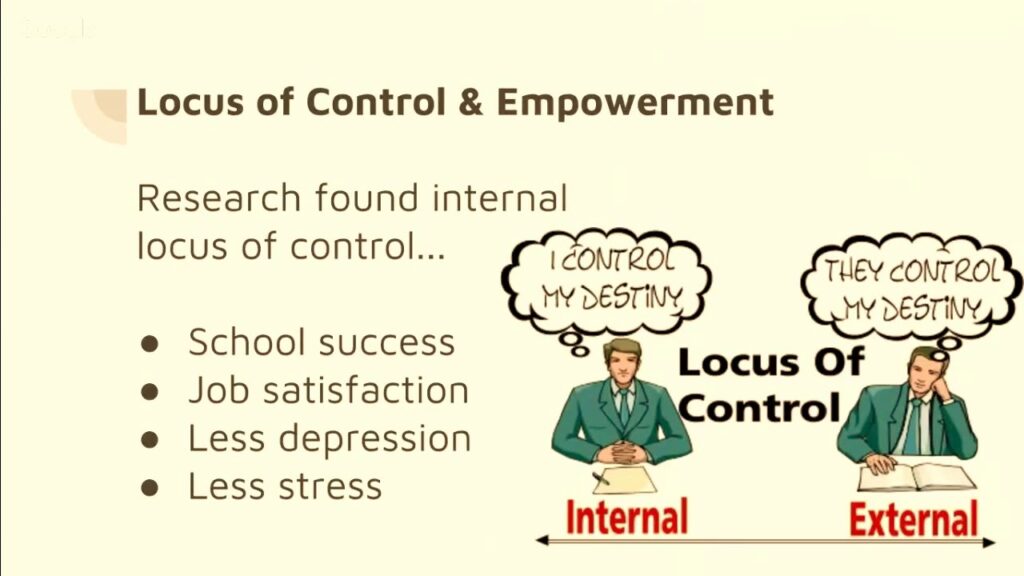
Even as parts of the world struggle to get access to food and water, it is ironic that obesity and being overweight kills more people than starvation.
The human body is vulnerable to several factors which might lead to weight gain, and not all of them are easily identifiable. Despite exhaustive workouts, meticulously planned diets, and unwavering dedication, we all sometimes pile on the pounds without fully understanding the reasons behind it.
The tendency to gain excessive weight can be triggered by a variety of reasons, physical or psychological. However, weight gain happens when the calorie intake of an individual exceeds the rate at which the calories are burnt.
Although unhealthy lifestyles and food habits are the common causes, there are many other factors that lead to weight gain in people with active routines.
It is important to note that merely gaining weight is not equal to being unhealthy. But when the increased weight starts affecting stamina and strength, the alarm bells start ringing loud and clear.
The role of genetics in weight gain

Studies have shown that the genetic makeup of individuals renders them susceptible to various diseases and health conditions (1). Genes contribute to weight gain in different ways by affecting appetite, metabolism, or body-fat distribution.
Because of the lack of mechanisms to control it, the genetic disposition towards being overweight is probably one of the most important factors contributing to obesity.
How much of my weight is genetic?
Scientifically, gene variants can determine how fat is stored in the body, how hungry an individual feels or the amount of food one can consume.
In other cases, obesity can be the outcome of other genetic disorders such as the Barder-Beidl syndrome and Prader-Willi syndrome.
Can I stay in shape despite my genetics?
While it is not uncommon to notice that the genetic makeup for obesity is often passed from parents to children, it would be erroneous to assume that genes have the last say in regulating one’s weight.
Genetic structure is not a definitive indicator of one’s weight. This means – someone inclined to be obese, is not destined to be obese. The effect that predetermined genes produce is not set in stone, and what makes all the difference is which genes express themselves and which ones are repressed.
Genes usually need to be complemented with behavioral choices, like lack of exercise, and external factors such as the abundance of food, to create a measurable impact on the waistline.

Studies have shown that with unchecked consumption of high sugar and fat levels, alongside minimal physical activity, the genes which increase our susceptibility to gain weight are being ‘activated’ more than ever (2).
Genetic conditions that leave an individual more vulnerable to weight gain make being active and working out regularly even tougher than it usually is.
So your struggle is real and yes! it’s harder for you than for someone without such genetic inclinations. However, the right combination of diet, exercise, and lifestyle choices can help an individual outsmart their genes and become the best version of themselves.
Environmental factors that contribute to weight gain

The immediate surroundings of an individual have a tangible, and often, direct impact on the weight of the individual.
If there is a lack of access to open spaces, running lanes, affordable gyms/fitness centers, or exposure to high levels of pollution, it becomes challenging to maintain a healthy weight.
The way most people live, work and unwind is generally very passive, with hardly any scope for physical activity. All these environmental factors are precursors to obesity.
1. Lack of access to healthy foods
If the supermarket is located at a considerable distance from the house, buying fresh fruits and vegetables might seem like a chore in itself, and one is likely to indulge in the much more omnipresent, easily available, and cheaper, fast food.
2. Lack of safe spaces to walk
If the neighborhood lacks safe spaces to walk or jog, the chances of using transport, even for short distances, go up, thus, limiting the already restricted physical activity.
3. Workspaces in skyscrapers
Offices and workplaces located in skyscrapers on high floors discourage the concept of taking stairs completely. Yes, you can choose to get off a couple of floors earlier and walk up the stairs. But the truth is people rarely do that.
If you worked on the first or second floor of a building, you would be more likely to skip the lift and take the stairs. We are all creatures of habit and we tend to do what we always did.
Being pressed for time in today’s world is the new norm, and most people feel like accomplishing work, health, and personal goals within 24 hours is impossible.
Thus, no matter how strong the resolve to eat healthily or taking the stairs is, in the face of exhaustion, a takeaway and an elevator generally emerge victoriously.
4. Socio-economic factors
Even socio-economic factors like disposable income and occupation greatly ascertain one’s commitment to health. Thus even if you are meeting all your workout goals, and yet, fail to increase your physical activity beyond the gym, the benefits of your workout will be much less noticeable.
Thus, environmental factors, which are beyond the control of an individual, greatly determine the weight maintenance of an individual (3). You need to spend time and resources in understanding and overcoming the physical and environmental barriers unique to your surroundings.
Keep in mind that even if the cause of weight gain can be identified, overcoming them and losing weight is no easy task. You need to make the necessary lifestyle changes required to reach and maintain a healthy weight.
The Locus of Control and Weight Loss
Weight loss and weight gain are both a test of the mind as much of the body. The concept of ‘locus of control’ describes the degree to which people believe they have control over their lives, in contrast to external forces that are beyond their control.

Those with a strong internal locus tend to believe that their actions and decisions determine the outcome of events in their lives, whereas those who identify with an external locus view everything as being controlled by outside factors.
The former make things happen in their lives, whereas the latter waits for things to happen to them.
How does the locus of control influence weight loss success?

The above-mentioned perception forms the basis of actions, decisions, and plans formulated by the individual (4). This also helps decide the amount of effort one takes to achieve and maintain their goals, even the ones related to health and weight.
1. Influences your actions
For instance, an individual who believes that their genetic disposition will definitely result in them being obese, and any effort to avert the same will be fruitless, is likely to neglect even the most basic health tips and practices.
2. Affects motivation
Feeling powerless and out of control can be a powerful de-motivator for anyone. If anyone feels that despite their best efforts to follow a rigorous workout regimen and a restrictive diet, they are never likely to reach their goals, they are not likely to give their best.
3. Focus and dedication
Those who have already conceded to their negative thoughts are not likely to benefit fully from their diet and workouts, no matter how intense it is. Thus, cheat days are likely to be more frequent. Focus and dedication are likely to be missing as well.
4. Keeping sight of goals
To achieve your weight loss targets, it is important that you keep sight of your goals at all times. There are reaffirmation tools and practices to rid the mind of such overwhelming thoughts if you feel overpowered by your feelings and assumptions.
Lifestyle Obstacles to Weight Loss

Despite best efforts, we cannot deny the degree of influence other life elements have on our health and weight.
Considering the amount of time, commitment, and sacrifice it takes to regularly work out and follow a diet plan, it is understandable if we give in to other priorities that are demanding our attention.
However, such a setback can result in upsetting the routine that the body is used to, and reversing the progress achieved till then.
1. A sudden change in lifestyle or daily routine
The motivation to be fit and stick to practice sessions takes a beating when a sudden promotion at work increases working hours, or a newborn baby takes over every aspect of life.
Life-altering decisions like career makeovers or getting married might result in further squeezing the time allocated to dedicated health regimens.
Similarly, a disappointment in the professional or personal life is likely to put a halt to otherwise dedicated schedules, and the resultant weight gain might not be easy to shake off.
2. Unable to make regular nutritious meals
A strenuous practice session must be followed by a rich, nutritious, and fulfilling diet of the right kind. The inability to toss up easy, nutritious, and quick meals could prove to be an impediment to consuming healthy foods.
Furthermore, any goal accomplishment needs to be supported by a strong social support system, and a lack of one might prove to be detrimental.
Other Causes of Weight Gain
All things said and done, there are probably a dozen other reasons why we tend to be overweight.
The delicate equation of calorie intake and output, if disturbed in any way, can lead to the storage of fat in the body resulting in weight gain.
Unfortunately in today’s day and age, there are plenty of ways to wreck this balance.
1. Hidden sugar

There are many invisible factors in an individual’s surroundings that cause them to overeat unknowingly.
Foods that cost less and require little time to prepare are in high demand. This reality is recognized by food manufacturers who often do not label their takeaway food products completely, leading to people buying stuff that has plenty of hidden calories.
Sugar is one such harmful ingredient that seems to be omnipresent. The cheap and easy availability of fast food, full of processed ingredients and sugar, is not the only reason for their high consumption.
Fast food companies spend a considerable amount of time and resources in creating perfectly delicious, addictive, and cheap products to make them irresistible to the masses.
Furthermore, their serving portions are exceptionally large to encourage overindulgence. Such foods are consciously produced by its manufacturers to be extremely palatable and they appeal to the region of the brain which relates to addiction.
People get addicted to sugar over time, increasing the risk of weight gain and obesity.
2. Medical Problems
Some medical problems like an underactive thyroid, Cushing’s syndrome, and polycystic ovary syndrome directly result in weight gain.
Certain medications, like corticosteroids, antidepressants, and seizure medication also contribute to the same.
Studies have also shown that people with an unhealthy mental and emotional health are likely to have increased chances of putting on weight.
3. Insulin Resistance
The sensitive biochemistry of the human body is adversely affected when the diet is inadequate to meet its basic nutritional requirements.
Leptin and insulin are two hormones that help regulate energy intake and its expenditure. Insulin and leptin resistance are both associated with obesity.
A diet high in sugar, grains, and processed foods not only increases inflammation in the body it also results in fat gain as the excess glucose is converted to fat. Such diets cause surges in both leptin and insulin.
Insulin made by the pancreas. It enables the cells to use glucose for energy. Insulin resistance causes the cells to have trouble absorbing and utilizing glucose, leading to a buildup of sugar in their blood. Since the body is unable to utilize the sugar, it gets stored as body fat.
4. Leptin Resistance
Leptin is produced by the fat cells and it tells the brain if the person is hungry, should eat and store more fat, whether to reproduce or to engage in maintenance and repair.
In other words, leptin sends messages to the brain to let it know how much energy is available and more importantly, what to do with it.
Just like with insulin, constant exposure to high levels of leptin cause the body to become resistant to them. Though leptin is supposed to increase feelings of satiety, obese people are found to have high levels of leptin (5).
When there is leptin resistance, the hormone is unable to decrease appetite or increase energy expenditure. Leptin resistance is now believed to be the leading cause of fat gain (6).
5. Lack of Sleep

Sleep deprivation, which is quite common due to a gadget-obsessed lifestyle, also plays a role in the weight gain epidemic.
Modern lifestyle choices result in people missing out on sleep or having poor-quality sleep. Research has now proved that those who eat healthy, exercise, and get an adequate amount of sleep find it easier to lose weight.
Sleep duration has an important role in body weight and metabolism. An American study (7) recorded that”
“Participants with short sleep had reduced leptin and elevated ghrelin. These differences in leptin and ghrelin are likely to increase appetite, possibly explaining the increased BMI observed with short sleep duration.
In Western societies, where chronic sleep restriction is common and food is widely available, changes in appetite regulatory hormones with sleep curtailment may contribute to obesity.”
Before you go…
Maintaining an optimum level of weight is not easy. With so many environmental distractions, constant messaging that advertises unhealthy food, and large serving sizes, even the toughest among us might find it hard to maintain a strict diet.
In addition to this, other lifestyle factors like high levels of stress, inadequate amounts of sleep, and exposure to high levels of pollution, are also responsible for a ballooning waist-size.
In order to attain and maintain holistic health and ideal body weight, we need to be conscious of our genetic makeup, environmental factors, and medical conditions that affect our body metabolism and contribute to weight gain.
While weight gain can creep up unexpectedly, undoing the damage takes consistent hard work, dramatic lifestyle changes, and a focused routine.
